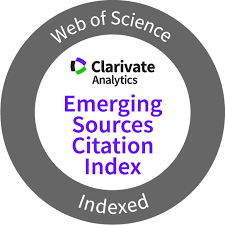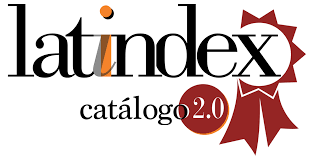CSR of Spanish electric cooperatives and Public Relations strategy
DOI:
https://doi.org/10.5783/revrrpp.v14i27.850Keywords:
Public Relations, Corporate Social Responsibility, Electric Cooperatives, SDGs, Stakeholders, Agenda 2030Abstract
Electric cooperatives generate, from their activity, internal and external conflicts with their stakeholders arising from their competitiveness and the achievement of their objectives. Responsible relationship management that maintains a balance between organizations and stakeholders should include environmental, social and good governance expectations in Corporate Social Responsibility (CSR) policies. The involvement of cooperatives in ethical, social, economic and environmental issues derives from the relevance given to sustainable development as a central axis of the cooperative model. In this context of sustainable development, the UN SDGs (2015) provide a roadmap to address major challenges at the global level. Integrating the SDGs into strategic CSR plans not only brings tangible social and environmental benefits, but can also improve transparency and accountability, attract investment, strengthen stakeholder confidence, generate new market opportunities, mitigate risks and ensure greater long-term stability. Corporate social responsibility (CSR) stands as one of the critical public relations vectors that foster the growth of organizations and their reputation. This contribution provides an approach to the management of social responsibility of the 28 Spanish electric cooperatives and its integration into public relations strategies. Through a descriptive and exploratory research, the main objective is to analyze CSR management in this sector based on corporate governance, involvement with the priority SDGs of the United Nations 2030 Agenda, relations with stakeholders, the commitments acquired towards them, the identification of communication channels and the material issues that condition relational management. Based on this objective, a data collection process is carried out by applying the following methodological triangulation based on qualitative and quantitative research techniques: implementation of a semi-structured ad-hoc questionnaire, in-depth interviews with sectoral experts and content analysis of sustainability reports and management reports. The results of the research show that there is little involvement in CSR policies and a lack of significant commitment to the priority SDGs on the part of the electric cooperatives. Most of the organizations analyzed do not facilitate stakeholder engagement processes or integrate their expectations into CSR management. They also do not sufficiently use two-way communication channels. Based on the identification of 17 material issues (economic, social and environmental), a matrix is drawn up that reflects the priority and relevance that these social economy organizations give them in their strategic CSR plans. It is concluded that electric cooperatives should plan public relations strategies that integrate to a greater extent the participation and expectations of their priority stakeholders, as well as establish strategic communication processes for CSR programs and actions. Based on the results, a CSR communication model is designed in which stakeholders are defined and relational management is analyzed to establish an optimal relationship framework. The electric cooperatives develop their materiality matrix as the cornerstone of the CSR Strategic Plan, which they disseminate through their reports and management reports. This matrix is built around two axes: the impact on the cooperative's sustainable development strategy and the priority for stakeholders. It identifies the issues (priority and relevant) through which electric cooperatives face challenges (economic, social and environmental) through corporate commitments. CSR communication, through the channels established with each priority stakeholder group, contributes to strengthening strategic public relations management in the electric cooperative sector.
Downloads
References
Alianza Cooperativa Internacional (12 de diciembre de 2019).
Arteaga Alcívar, Y. A., Begnini Domínguez, L. F., Cabezas Arellano, M. J. y Salcedo Ruáles, I. A. (2022). Desarrollo Sostenible y Responsabilidad Social Corporativa. Dominio De Las Ciencias, 8(3), 867- 880.
https://dominiodelasciencias.com/ojs/index.php/es/article/view/2843
Barroso, M.B., Castillo-Esparcia, A. y Ruiz-Mora, I. (2023). La dimensión medioambiental y los ODS en la comunicación estratégica de las empresas de triple impacto. Estudios sobre el Mensaje Periodístico, 29(1), 27-42. https://dx.doi.org/10.5209/esmp.82341
Cabrera-Cabrera, M.A. y Almansa-Martínez, A. (2016). El director de relaciones públicas en las grandes empresas españolas. Revista Internacional de Relaciones Públicas 6(11), 113-134. http://dx.doi.org/10.5783/RIRP-11-2016-07-113-134
Campillo-Alhama, C. e Igual-Antón D. (2021). Corporate Social Responsibility Strategies in Spanish Electric Cooperatives. Analysis of Stakeholder Engagement. Sustainability, 13, 6810. https:// doi.org/10.3390/su13126810
Capriotti, P. (2011). Communicating corporate social responsibility through the internet and social media. En Ø. Ihlen, Øyvind, J. L. Bartlett y S. May (Coords.), The handbook of communication and corporate social responsibility (pp. 358-378). Wiley-Blackwell. https://www.researchgate.net/publication/255696564_The_Handbook_of_Communicationand_Corporate Social Responsibility.
CEG (Club Excelencia en Gestión) (8 de enero de 2021). Modelo EFQM (European Foundation for Quality Management). https://clubexcelencia.org/modelo-efqm
Comisión Nacional de los Mercados y la Competencia (3 de enero de 2021). https://www.cnmc.es/
De Colle, S., Freeman, R. E. y Wicks, A. C. (2024). Toward Humanistic Business Ethics. Business & Society, 63(3), 542-571. https://doi.org/10.1177/00076503231183681
Edelman (2021). Edelman Trust Barometer. https://www.edelman.com/trust/2021-trust-barometer
Enercoop (2023). Memoria anual 2022. https://www.grupoenercoop.es/memoria-anual/
García-Salazar, Á., Echeverri-Rubio, A. y Vieira-Salazar, J. A. (2021). Responsabilidad social corporativa y gobernanza: Una revisión. Revista Universidad & Empresa, 23(40), 1-26. https://doi.org/10.12804/revistas.urosario.edu.co/empresa/a.9389
Global Reporting Initiative (GRI) (10 de febrero de 2020).
https://www.globalreporting.org/standards/
Grunig, J. y Hunt, T. (2000). Dirección de Relaciones Públicas. Gestión 2000.
Hung-Baesecke, C., Chen, Y. y Boyd, B. (2016). Corporate social responsibility, media source preference, trust, and public engagement: The informed public’s perspective. Public Relations Review, 42(4), pp. 591-599. https://doi.org/10.1016/j.pubrev.2016.03.015
Ji, Y.G., Tao, W. y Rim, H. (2020). Mapping corporate social responsibility research in communication: A network and bibliometric analysis. Public Relations Review, 46(5). https://doi.org/10.1016/j.pubrev.2020.101963
Labarca, C. y De Simone, L. (2023). Cuando la crisis te hace visible: El caso de las memorias corporativas de Metro S.A. Revista Internacional De Relaciones Públicas, 13(26), 105-120. https://doi.org/10.5783/revrrpp.v13i26.845
Lane, A. B. y Devin, B. (2018). Operationalizing stakeholder engagement in CSR: A process approach. Corporate Social Responsibility and Environmental Management, 25(3), 267-280. https://doi.org/10.1002/csr.1460
Ministerio de Empleo y Seguridad Social (2015). Estrategia española de responsabilidad social de las empresas. https://www.mites.gob.es/ficheros/rse/documentos/eerse/EERSE-Castellano-web.pdf
Ministerio de Trabajo, y Economía Social (2022). Portal de la Responsabilidad Social. http://www.mitramiss.gob.es/es/rse/index.htm
Mozas-Moral, A. y Puentes-Poyatos, R. (2010). La responsabilidad social corporativa y sus paralelismos con las sociedades cooperativas. REVESCO, Revista de Estudios Cooperativos, 103, 75-100. https://dialnet.unirioja.es/servlet/autor?codigo=859801
NN.UU. (2015). Objetivos de Desarrollo Sostenible (Agenda 2030)
https://www.un.org/sustainabledevelopment/es/
Ozdora, E., Ferguson, M.A. y Duman, S. (2016). Corporate social responsibility and CSR fit as predictors of corporate reputation: A global perspective. Public Relations Review, 42(1), 79-81. https://doi.org/10.1016/j.pubrev.2015.11.004
Pineda Martínez, P. (2013). Relaciones Públicas Online de excelencia: Las empresas energéticas del IBEX35 ante el reto de comunicar su conducta responsable. Revista Internacional de Relaciones Públicas, 3(5), 189-208. https://doi.org/10.5783/revrrpp.v3i5.170
Piñeiro-Naval, V. (2020). The content analysis methodology. Uses and applications in communication research on Spanish-speaking countries. Communication & Society, 33(3), 1-16. https://revistas.unav.edu/index.php/communication-and-society/article/view/37049
Ruiz-Mora, I. (2012). Las relaciones con los públicos y su reflejo en las memorias de Responsabilidad Social. Revista Internacional de Relaciones Públicas, 2(4), 173-200. http://revistarelacionespublicas.uma.es/index.php/revrr pp/article/view/104
Ruiz-Mora, I. y Castillo-Esparcia, A. (2015). Responsabilidad social de las empresas en España. Prisma Social, 14, 302-335.
Sánchez Villamil, D.N., Rivera Cachope, J.A. y Jaque Olave, N.G. (2019). Divulgación de información no financiera en las organizaciones: una mirada desde los informes de sostenibilidad y los reportes integrados. En Sánchez Villamil, D.N., Rivera Cachope, J.A., Brand Jaramillo, R.D. (Comp.), La investigación e información corporativa desde la perspectiva de los reportes integrados y el Gobierno corporativo (pp. 14-35). Fondo Editorial Universitario Servando Garcés de la Universidad Politécnica Territorial de Falcón Alonso Gamero.
Server-Izquierdo, R. y Lajara-Camilleri, N. (2016). La gestión sostenible de las cooperativas. Los valores y principios cooperativos como referencia. AECA: Revista de la Asociación Española de Contabilidad y Administración de Empresas, 115, 60-61. http://www.aeca1.org/revistaeca/revista115/115.pdf
Sierra Caballero, F. (2019). La entrevista en profundidad. Función, sentido y técnica. En J.A. González y C.M. Krohling Peruzzo (Ed.), Arte y oficio de la investigación científica: cuestiones epistemológicas y metodológicas (pp. 301-379). Ediciones Ciespal.
Torres-Pérez F.J. (2017). Análisis legal de la implementación de la RSC en las Sociedades Cooperativas. Revista Jurídica Portucalense, 21, 57-79. https://revistas.rcaap.pt/juridica/article/view/9532
Wilson, V. (2011). Research methods: content analysis. Evidence based library and information practice, 6(4), 177-179. https://doi.org/10.18438/B86P6S
Downloads
Published
How to Cite
Issue
Section
License
Copyright (c) 2024 Concepción Campillo Alhama, Diego Igual Antón

This work is licensed under a Creative Commons Attribution-NonCommercial-NoDerivatives 4.0 International License.
Authors publishing in this journal agree to the following terms:
a. Authors retain copyright and grant the journal the right to be the first publication of the work as licensed under a Creative Commons Attribution License that allows others to share the work with an acknowledgement of authorship of the work and initial publication in this journal.
b. Authors may separately enter into additional arrangements for non-exclusive distribution of the version of the work published in the journal (e.g., placing it in an institutional repository or publishing it in a book), with an acknowledgement of initial publication in this journal.
c. Authors are allowed and encouraged to disseminate their work electronically (e.g. in institutional repositories or on their own website) before and during the submission process, as it can lead to productive exchanges, as well as earlier and higher citation of published work (see The Effect of Open Access).





